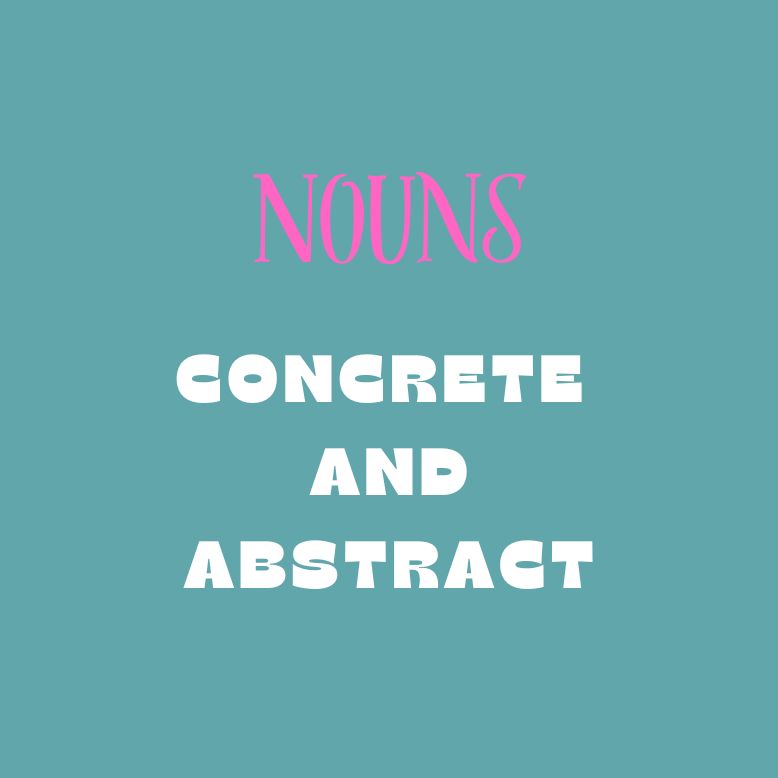Concrete and Abstract Nouns

Concrete and Abstract Nouns
Concrete Nouns:
Concrete nouns are a type of noun that refers to tangible, physical objects that can be perceived by the five senses: sight, hearing, touch, taste, and smell.
These nouns represent things that have a physical presence in the real world, making them more concrete and easier to understand.
Concrete nouns are nouns that you can see, hear, touch, taste, or smell.
They represent objects that exist in the physical world and can be experienced through the senses.
Concrete nouns can be both common and proper nouns.
Examples:
Table: You can see and touch a table.
Car: You can see, touch, and hear a car.
Apple: You can see, touch, taste, and smell an apple.
Music: You can hear music.
Beach: You can see, touch, and hear the waves at the beach.
Chocolate: You can see, touch, taste, and smell chocolate.
Mount Everest is a proper noun representing a concrete object, as you can see and touch the mountain.
Concrete nouns contrast with abstract nouns.
Abstract Nouns:
Abstract nouns are a category of nouns that represent ideas, concepts, qualities, or conditions that are not tangible and cannot be perceived through the five senses (sight, hearing, touch, taste, and smell).
Instead of referring to physical objects, abstract nouns express emotions, thoughts, states of being, or intangible aspects of the human experience.
Abstract nouns are used to describe things that exist in the mind or as concepts but lack a physical, concrete form.
They often represent feelings, emotions, qualities, actions, or ideas that are more about perception, thought, or experience than physical objects.
Love: Love is an abstract noun that represents a deep emotional connection between people. It cannot be seen or touched but is felt and experienced.
Happiness: Happiness is the abstract concept of feeling joy and contentment. It’s not something you can hold in your hand but is a significant part of human experience.
Justice: Justice represents a concept of fairness, equality, and moral rightness. It’s not a physical object but a principle guiding societal values.
Freedom: Freedom refers to the state of being free from restraint or oppression. It’s an abstract idea that has profound societal and philosophical significance.
Courage: Courage is an abstract quality that describes the ability to confront fear or adversity. It’s not a physical attribute but a personal characteristic.
Beauty: Beauty is a subjective concept that represents an aesthetic quality. It’s about perception and can vary from person to person.
Knowledge: Knowledge represents the understanding or awareness of facts, information, or skills. It’s a mental concept.
Patience: Patience is an abstract quality that involves the ability to wait calmly and without frustration. It’s a state of mind.
Confusion: Confusion is an abstract condition of being unclear or uncertain in one’s thoughts or understanding.
Serenity: Serenity is a state of calmness and peacefulness. It’s a feeling or quality, not a physical object.
Abstract nouns help us discuss concepts, values, and experiences that are central to our human
About Nouns. Common and Proper Nouns